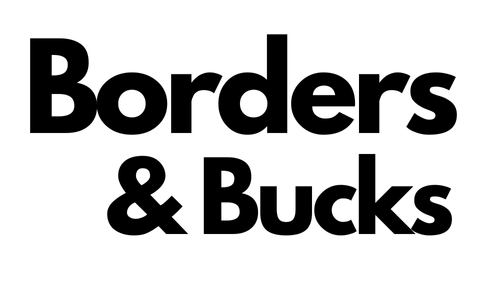The $38,000 Tax Bill That Changed Everything: Why Smart Money Is Crossing Borders
The $38,000 Tax Bill That Changed Everything: Why Smart Money Is Crossing Borders
Last month, I watched a successful business owner in Sydney receive a tax assessment that made him physically ill. $38,000 in additional taxes on a property sale he thought was structured correctly. The worst part? His accountant just shrugged and said, "That's the way it is."
But here's what most people don't realize: that same transaction, structured through a different jurisdiction, could have been completely legal and saved him nearly the entire amount.
This isn't about tax evasion. This is about tax optimization—understanding that where you conduct business matters as much as how you conduct it.

The Hidden Cost of Staying Put
Most of us grow up assuming our home country offers the best opportunities. We're taught to work hard, pay our taxes, and accept whatever system we're born into. But what if that assumption is costing you thousands—or tens of thousands—every year?
Consider these real scenarios:
The Tech Consultant: Sarah runs a digital marketing consultancy from Brisbane. Last year, she paid $42,000 in Australian taxes on $120,000 of income. The same business, run from Dubai with proper residency, would have paid zero income tax. That's $42,000 annually that could have funded her retirement, her children's education, or her next business venture.
The Property Investor: Mark flips houses in Melbourne. Between capital gains tax, stamp duty, and other fees, the government takes roughly 35% of his profits. The same strategy in New Zealand or certain U.S. states could cut that burden in half.
The Online Business Owner: Emma sells digital courses globally from her home office in Perth. She's competing with course creators in Singapore (15% max tax rate) and Estonia (20% corporate rate with deferred personal tax). While she's paying 32.5% on every dollar over $45,000, her international competitors keep more of their revenue to reinvest in growth.
The question isn't whether these entrepreneurs should pay their fair share. The question is: what defines "fair" when the rules change based on which side of an imaginary line you call home?
The Portugal Wake-Up Call
Three years ago, I met an Australian retiree in Lisbon who opened my eyes to what's possible. He'd moved to Portugal under their Non-Habitual Resident program and legally reduced his tax obligation from roughly $28,000 annually to under $3,000.
Same pension. Same lifestyle. Different postal code.
He wasn't dodging anything—he was optimizing everything. Portugal wanted to attract foreign residents, so they created incentives. He simply took advantage of what was offered.
"The hardest part," he told me over coffee near the Tagus River, "wasn't the paperwork or learning Portuguese. It was overcoming the mental programming that told me I had to accept whatever tax rate my birthplace assigned me."

Beyond the Tax Savings
While tax optimization grabs headlines, it's just one piece of a larger puzzle. Consider what else changes when you think beyond borders:
Cost of Living Arbitrage: Your Australian salary stretches 2-3x further in places like Mexico, Portugal, or Thailand. That $80,000 income that barely covers a modest lifestyle in Sydney could fund a premium lifestyle in Lisbon or Bangkok.
Healthcare Options: Many countries offer better healthcare outcomes at a fraction of the cost. Medical tourism isn't just about surgery—it's about accessing world-class preventative care and treatments unavailable or prohibitively expensive at home.
Education Opportunities: Want your children to be multilingual global citizens? Countries like Germany offer free university education to residents, regardless of nationality. That's potentially $200,000+ saved per child compared to Australian university costs.
Business Advantages: Some jurisdictions offer streamlined business formation, better legal protections, or access to markets that could transform your income potential.
The Permission You Don't Need
Here's what I wish someone had told me 20 years ago: you don't need permission to optimize your life internationally.
You don't need to be ultra-wealthy. You don't need special connections. You don't need to renounce your citizenship or burn bridges.
What you need is:
Accurate information about your options
A strategic plan for implementation
The mindset shift that sees borders as choices, not constraints
The biggest barrier isn't legal, financial, or logistical. It's psychological. We're conditioned to accept the system we're born into without questioning whether better alternatives exist.
The Questions That Change Everything
Instead of asking "How can I minimize my taxes?" try asking:
"What would my ideal lifestyle cost in different countries?"
"Which jurisdictions align with my values and business goals?"
"What opportunities exist that I'm not even aware of?"
"How can I legally structure my affairs to keep more of what I earn?"
These questions open doors instead of accepting walls.
Your Next Move
The entrepreneur from Sydney? After his $38,000 shock, he spent six months researching international structures. He's now based in Singapore, pays a fraction of his previous tax rate, and has access to business opportunities across Asia that were invisible from Australia.
The lesson isn't that everyone should move to Singapore. The lesson is that everyone should understand their options.
Whether you're earning $75,000 or $750,000, whether you're 25 or 65, whether you're single or have a family—there are legal strategies available that could dramatically improve your financial position and lifestyle quality.
The question is: are you curious enough to explore them?
Want to discover what's possible for your specific situation? Our International Lifestyle Design consultation helps you map out your options and create a strategic plan for optimizing your taxes, lifestyle, and opportunities across borders. Because life's too expensive to stay in one tax
Latest News
Who We are?
We give Strategic guidance for globally minded individuals ready to optimize taxes, gain mobility, and design a borderless life.
Created with ©systeme.io



